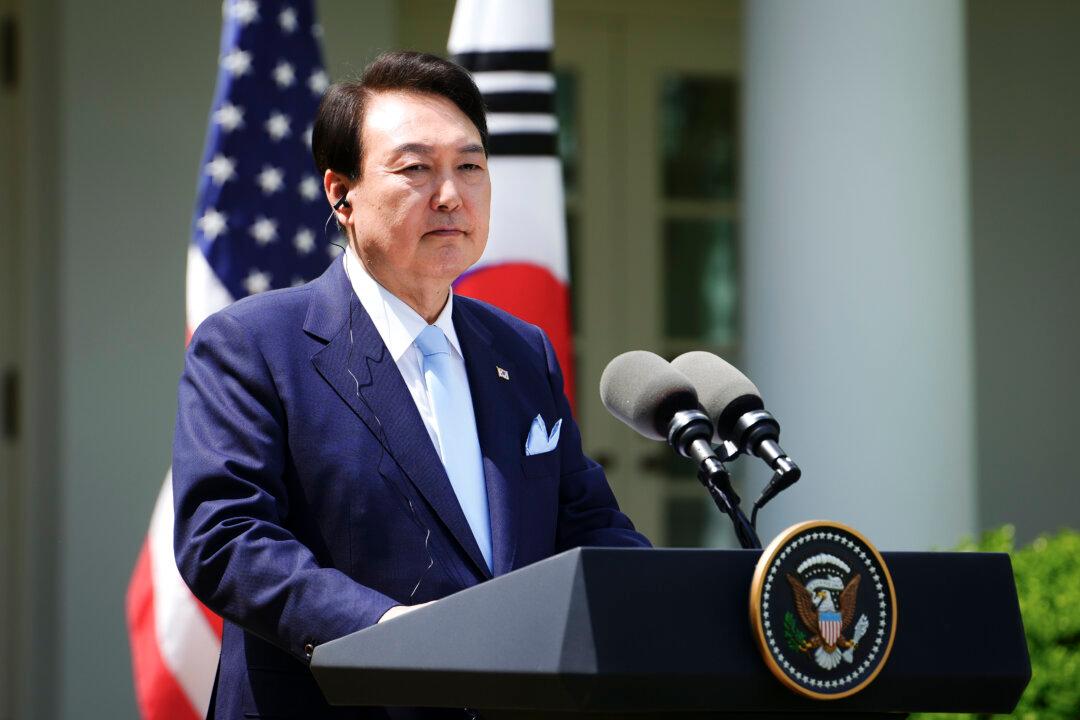The South Korean leader has called for stronger cooperation with the United States and Japan, including collaboration on reconnaissance assets, to counter North Korea’s growing nuclear threats.
In his Liberation Day speech on Aug. 15, President Yoon Suk-yeol said the upcoming summit with the U.S. and Japanese leaders at Camp David would set “a new milestone” in their trilateral cooperation.





